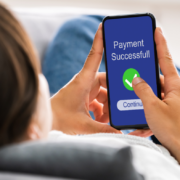 By Sally Greenberg, CEO of the National Consumers League
By Sally Greenberg, CEO of the National Consumers League
Each year, I look forward to the end of summer because I take an annual pilgrimage to the U.S. Open tennis tournament in Queens, NY. What I don’t look forward to is the process of trying to get a ticket to this event. Like millions of other fans, it always feels to me like I’m playing a rigged game designed to wring every dime of profit out of me.
In the olden days, I could stand in line at the window of the tennis center an hour before the gates opened and buy a face-value ticket with no fees attached. In those halcyon days of yore, the tickets were typically priced around $120 – 160, getting me a grounds pass and entry into the show courts, where the best matches are played.
So much for the good old days; today, there are no face-value tickets to be had. The business of selling and scalping tickets has become a corporate enterprise, with private equity firms getting in on the game as tickets get sold for sky-high prices with exorbitant junk fees tacked on for good measure.
In sum, my chances of getting a face-value ticket to the U.S. Open are about the same as my chances of seeing a dodo bird.
My effort to get tickets to the U.S. Open was as frustrating as it is familiar for millions of fans. On August 15, I searched the Ticketmaster site to see about getting a ticket to the Open on Friday, August 30. Being a good consumer, I comparison shopped by googling “U.S. Open Tickets” and up came results from SeatGeek, StubHub, and Vivid. On the official Ticketmaster site for the tournament, I could find no face-value tickets for games on the Arthur Ashe court during an in-demand weekend, just “Verified Resale” tickets.
Why were there no tickets available? This is where the lack of transparency in the ticket marketplace comes into play. Were those tickets scooped up by ticket brokers looking to turn a quick buck? Did they have special “deals” with corporate sponsors, the U.S. Open itself, or other connected insiders? Or did the brokers get their tickets with the help of illegal ticket-buying “bot” software? No one knows though FTC enforcement against several brokers in 2021 suggests this may be the case more often than not.
In the end, I knuckled under and bought two tickets from a resale site—$249.00 + $47.67 in fees each, for two tickets in the top row of a huge stadium. Even then, my ordeal was not over. I received a confusing “Good News” email telling me that the seller had transferred the tickets to me and to check the U.S. Tennis Association app, which I did. No tickets.
I checked the U.S. Open app. No tickets.
I checked the Ticketmaster app. No tickets.
I continued to check all week to no avail.
I tried reaching out to the reseller via their customer service email address and received no response. I looked for a customer service phone number to call to no avail. The event was getting close, and I began to panic.
While my story did end happily (I got my tickets), it required me to move heaven and earth (and get in touch with the company’s lobbyist) to find a resolution. This is not an option for most consumers who too often have to put up with lousy customer service to get simple problems resolved.
There are no angels in this industry. Whether buying from a reseller, Ticketmaster, or directly from the box office, consumers find themselves feeling gouged, forced to pay junk fees thanks to drip pricing, and having to put up with bad customer service operations. Just ask the millions of Oasis fans who suddenly learned what “dynamic pricing” can do to the price of a ticket.
It does not have to be this way.
The National Consumers League has long been a voice for consumers fed up with having to navigate what feels like a Rube Goldberg-esque scheme simply to get a simple ticket to a concert, theater, or sporting event.
So, what are our policy recommendations?
- America needs a national all-in ticket pricing law to end hidden junk fees. The House of Representatives overwhelmingly passed the TICKET Act earlier this year, which would do just that. The Senate should follow suit.
- The FTC should investigate how tickets end up on the resale marketplace. While much attention gets paid to the eye-watering price of tickets on the resale market, shockingly, little has been paid to how they get there in the first place.
- Primary ticket sellers should be required to disclose how many tickets will be made available to the general public and how many are being “held back” for connected insiders.
- Ticket sellers should be required to maintain 24/7 customer service phone lines to assist consumers who need help navigating the overly complicated processes for actually accessing tickets.
All of the stakeholders in the success of live events should get behind these recommendations. If fans continue to be mistreated by the industry, they’ll stop going to events, and that will be a loss for more than just this tennis fan.
###
About the National Consumers League (NCL)
The National Consumers League, founded in 1899, is America’s pioneer consumer organization. Our mission is to protect and promote social and economic justice for consumers and workers in the United States and abroad. For more information, visit nclnet.org.










 By Sally Greenberg, CEO of the National Consumers League
By Sally Greenberg, CEO of the National Consumers League













